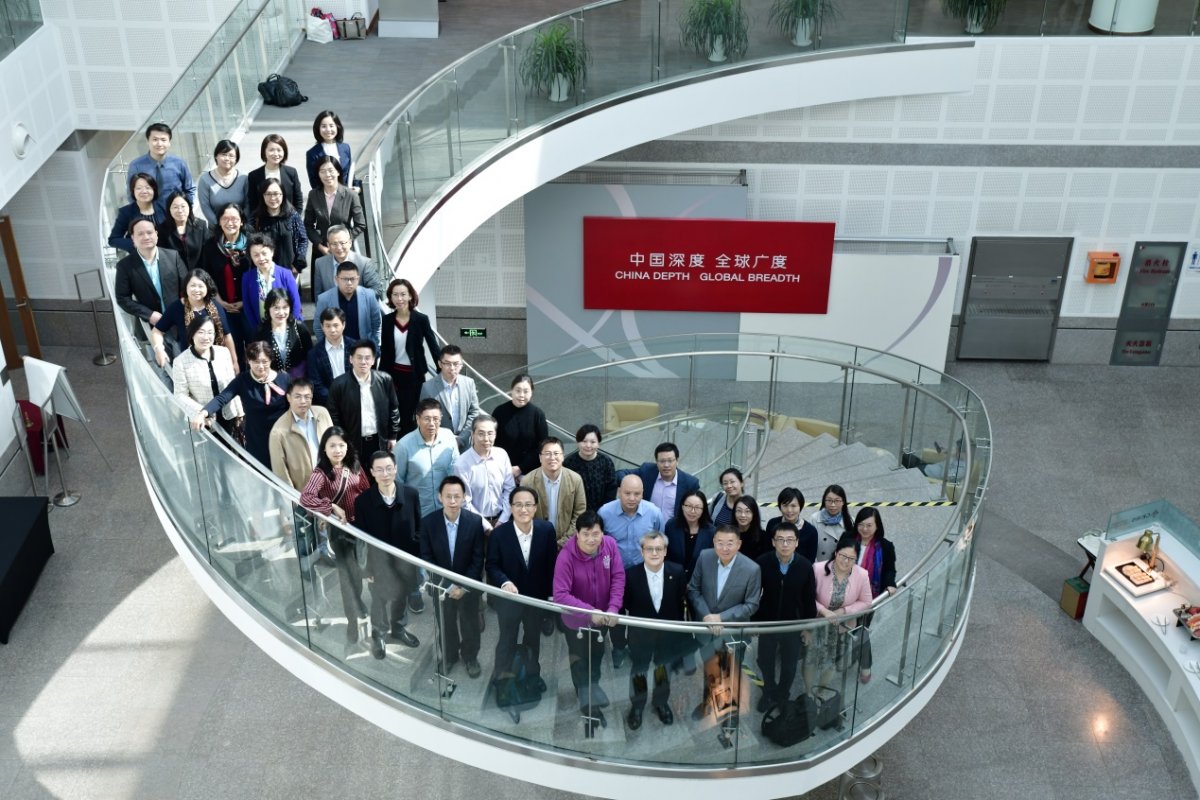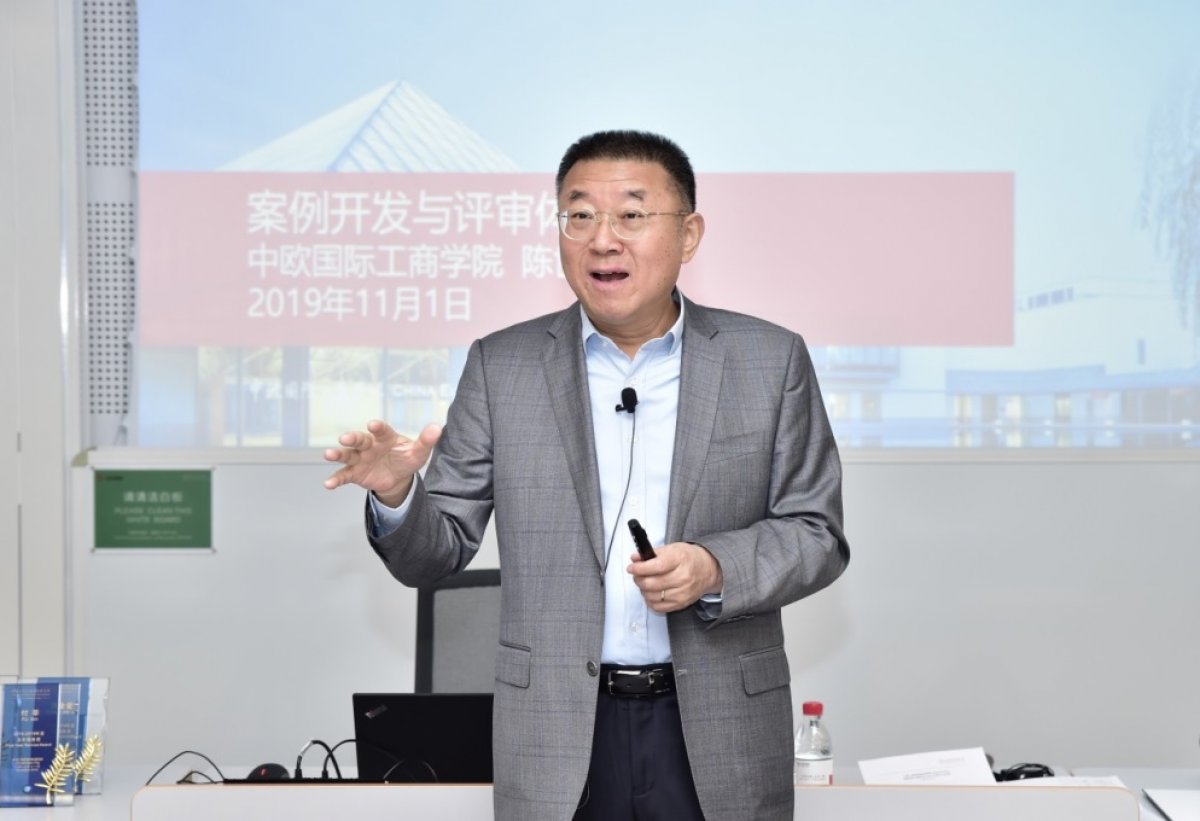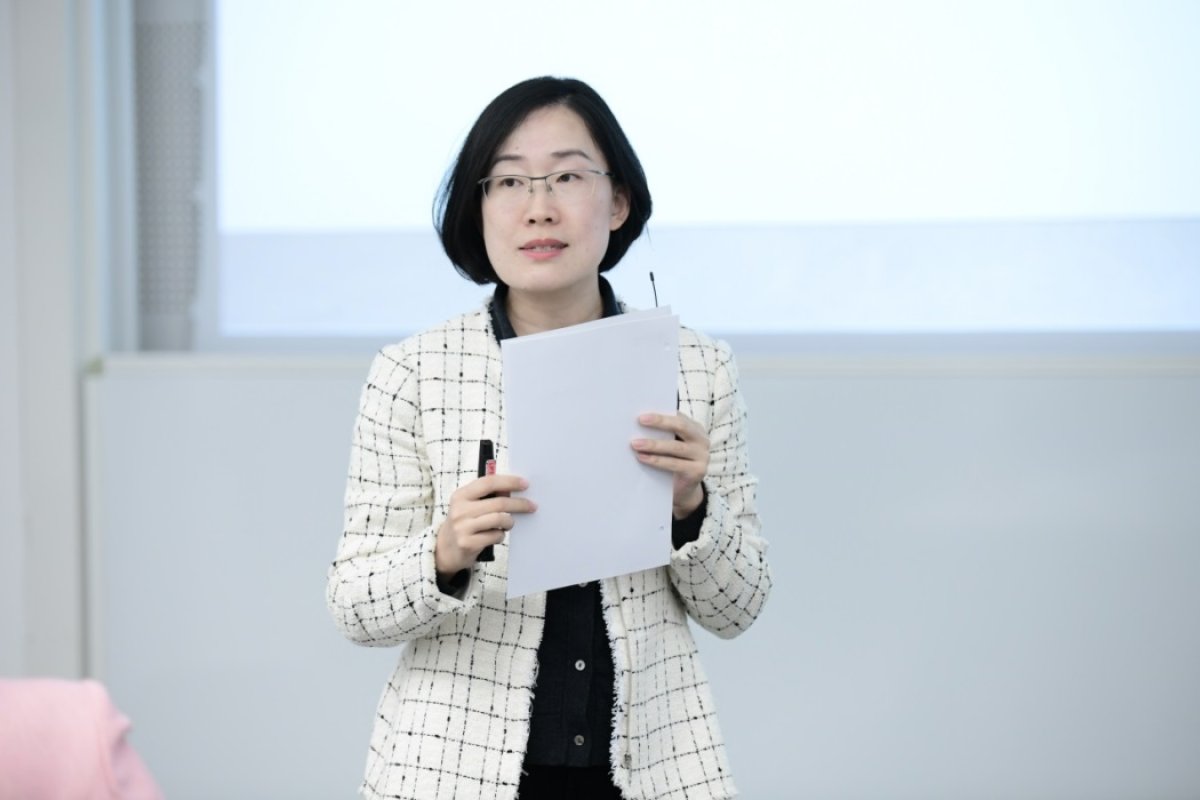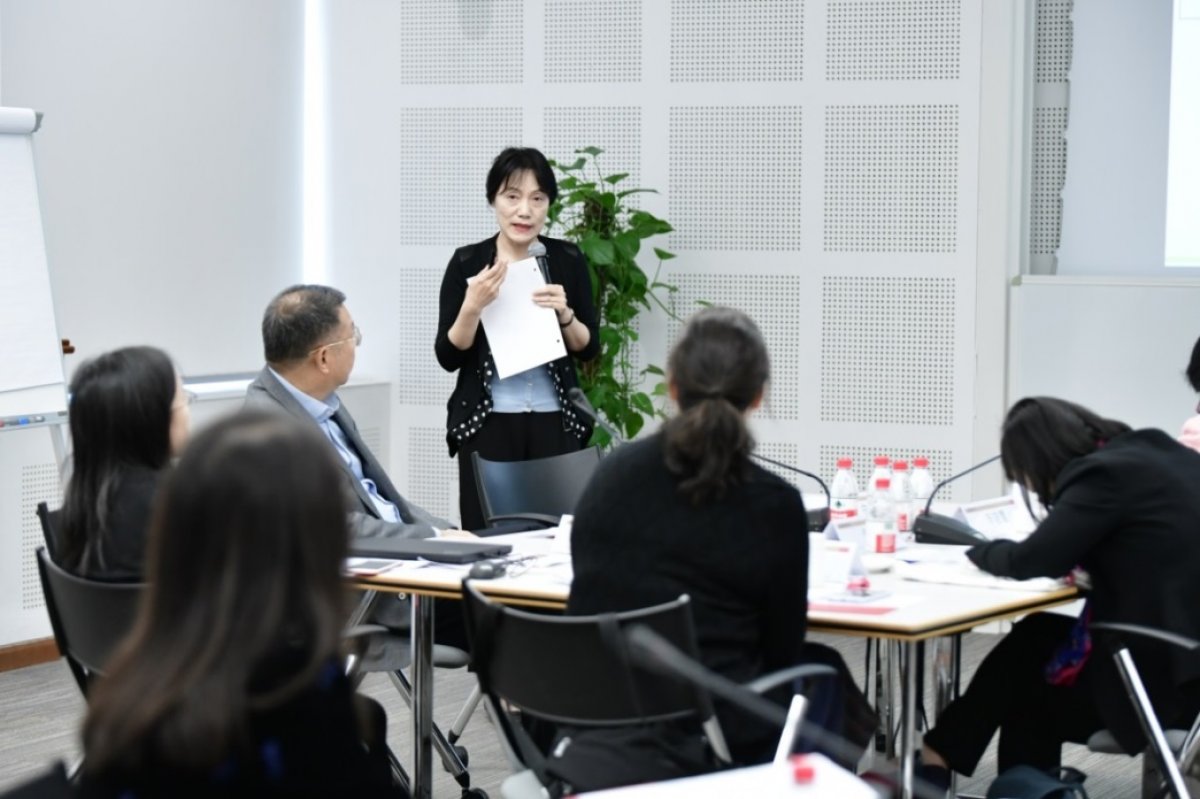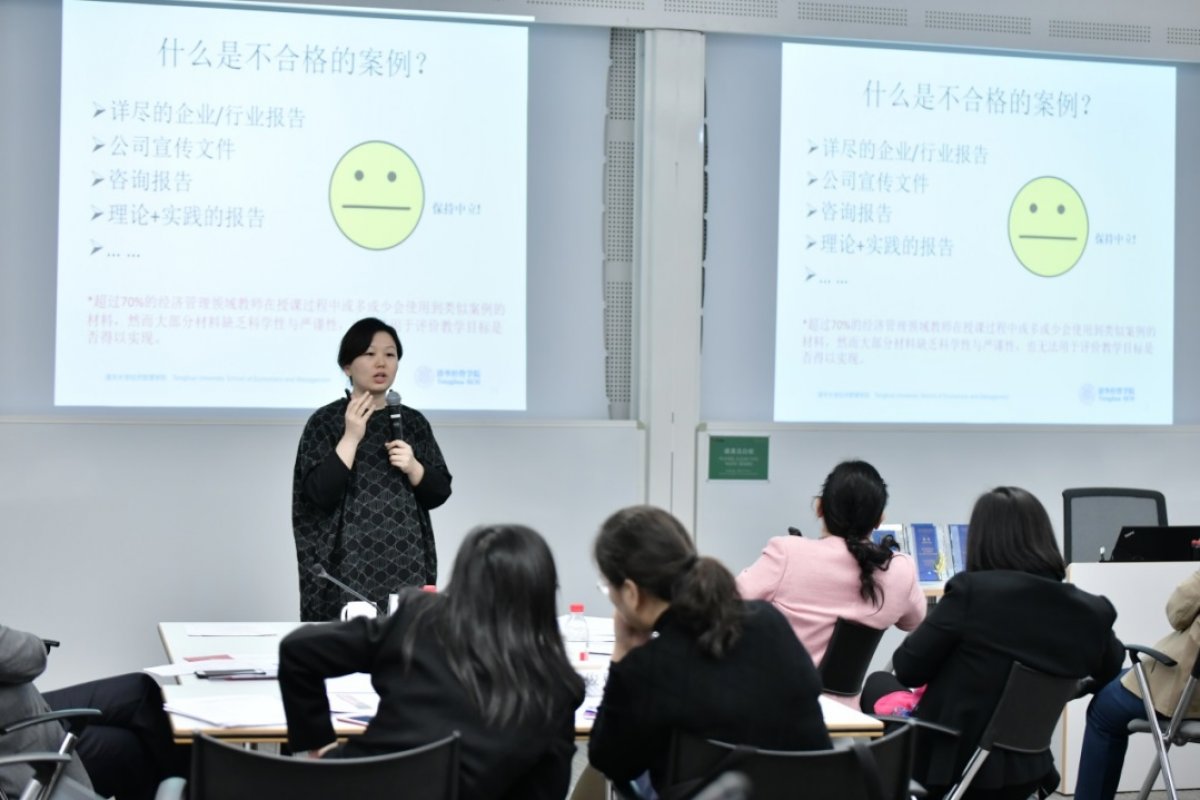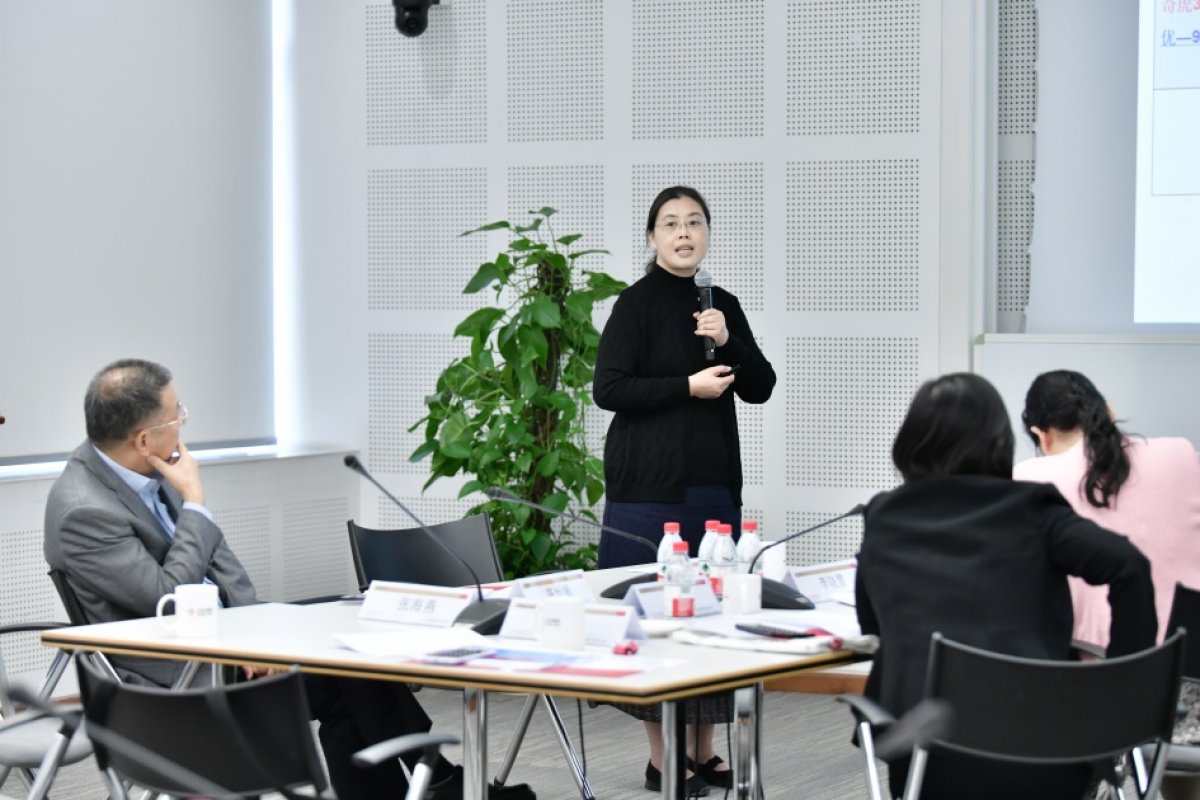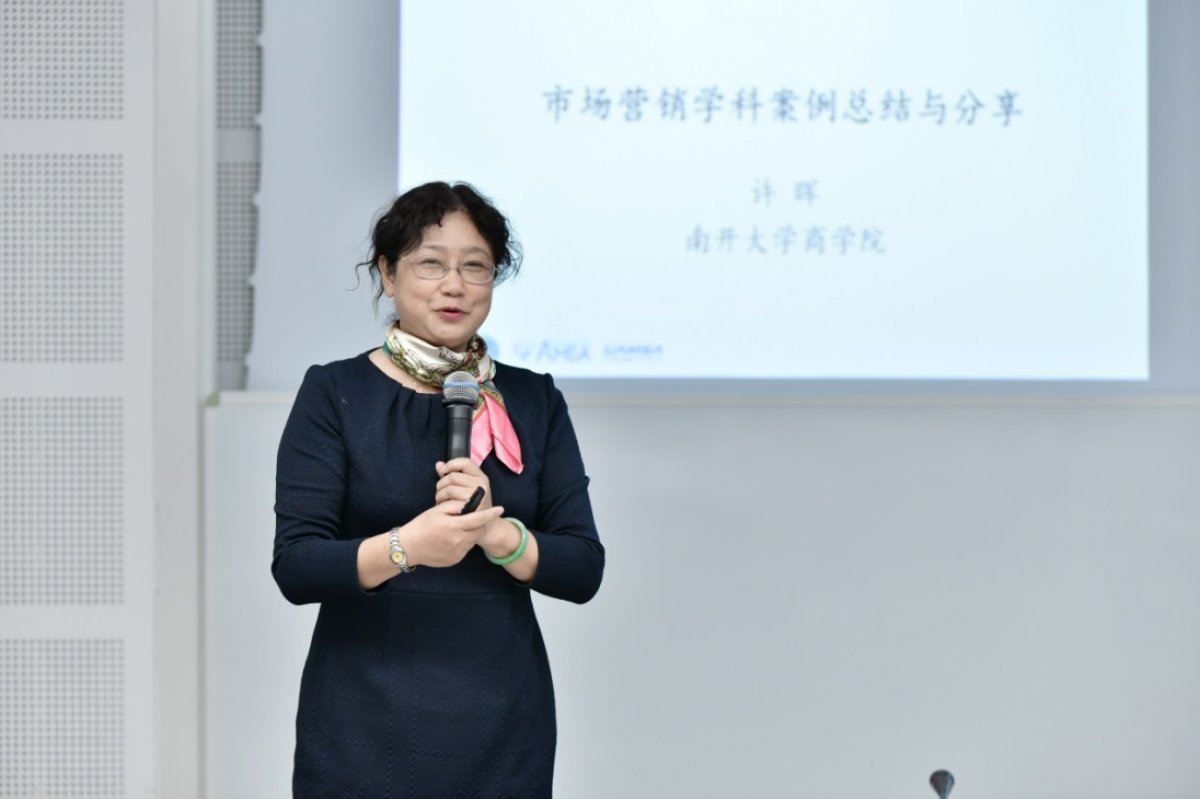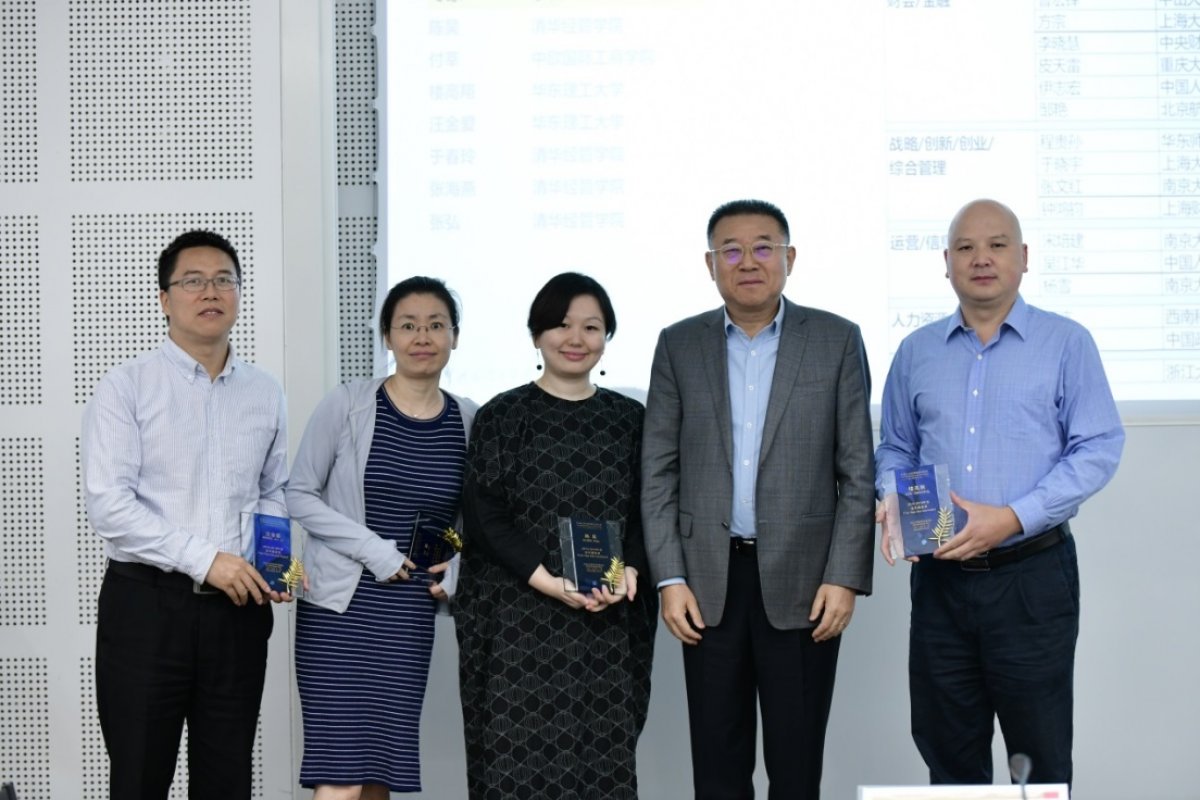CEIBS Hosts ChinaCases.Org Case Review Committee Seminar 2019
November 1, 2019, Shanghai – The CEIBS Case Center hosted the ChinaCases.Org Case Review Committee Seminar 2019 at the CEIBS Shanghai campus today, with remote participation from the Beijing campus via video teleconference. The panel of reviewers has expanded this year to 54 experts – up from 38 last year – including representatives from member institutions of the Shanghai MBA Case Development and Sharing Platform, Tsinghua University, CEIBS and other Chinese institutions. Forty-one members of the committee participated in the seminar, where they shared their experiences and exchanged comments on case evaluation.
In his welcome address, Professor Chen Shimin, Director of the CEIBS Case Center and chair of the seminar, thanked the experts for attending the seminar and for their contribution to improving case quality. He noted that, owing to their professional evaluation, the quality of the cases included in ChinaCases.Org has dramatically improved. He also expressed hope that a common understanding on the criteria for evaluation could be reinforced by experts at the seminar to ensure the high quality of cases included in the library.
Prof. Chen then gave a brief introduction about the CEIBS Case Center and the development progress of ChinaCases.Org. He also highlighted the three major purposes of the CEIBS Case Center: First, to support CEIBS professors in developing more high-quality teaching materials for management issues in China and leading innovation in teaching and research; second, with the support of the Shanghai Municipal Government and through collaboration with leading business schools in Shanghai, to develop the Shanghai MBA Case Development and Sharing Platform and to promote wider application of the case method in management education and training (e.g., through the organisation of the biannual CEIBS Case Master Development Camp and the annual Global Contest for the Best China-focused Cases); and, third, to operate a “China-focused, international standard” ChinaCases.org with the aim of developing a top library for teaching cases on China-related management issues. As of August 2019, ChinaCases.Org has accepted 1,306 cases, 23% of which are available in English and 75% of which include accompanying teaching notes. It has provided cases for over 2,000 teachers from 21 institutions in Mainland China, benefiting 130,000 students. Through strategic co-operation with Tsinghua University, ChinaCases.Org can be accessed at libraries at 110 institutions in Mainland China. ChinaCases.Org has also received orders from numerous international business schools, including Harvard Business School, London Business School, INSEAD, IESE Business School and the Indian School of Business.
During the session, Prof. Chen further highlighted the efforts invested in improving the case evaluation process since the Global Contest for the Best China-focused Cases was first held in 2015, while giving particular focus on the submission and evaluation process for the 2018 contest. As the evaluation process has improved, significant progress has also been made in terms of expert background matching and consistency of evaluation comments, as well as the response rates of reviewers and authors.
Prof. Chen then conducted a detailed analysis of the case evaluation criteria, starting with an explanation of the differences between research cases, practical cases and teaching cases. He then summarised the characteristics of high-quality teaching cases based on his own experience in case development and teaching. Drawing on his experience as editor-in-chief of ChinaCases.Org, he analysed the evaluation criteria of case texts and teaching notes, noting some typical problems in China-based cases observed during the evaluation process. In concluding, he gave a teaching demonstration using his latest accounting case, which showed the development and application context of the case to help reviewers better relate to the abstract evaluation criteria.
During the afternoon discussion session, experts broke into five groups based on their area of expertise in strategy, marketing, operation and information science, human resources and organisational behaviour, or finance and accounting. The breakout groups discussed such topics as uniform evaluation scoring criteria and case quality control, using real-life examples of previous case evaluations. Each group then presented a summary of their discussion. To facilitate a more productive discussion, a model case was assigned to each group prior to the seminar, so that reviewers could prepare for the discussion by previewing and pre-evaluating the case in advance.
Speaking on behalf of the strategy group, Associate Professor Li Zhen touched upon four aspects of the evaluation – including the result distribution of the pre-evaluation stage, post-evaluation results, scoring criteria and reviewer comments – and discussed the do’s and don’ts of expert review and editor evaluation, with a particular focus on feasible solutions and advice for cases that require revision.
Associate Professor Lao Guoling, editor of the operation and information science group, then talked about finding a balance between enriching the case library and controlling case quality, while noting that case evaluation should take teaching needs and case diversity into account. Future evaluation should also consider the rise in the interdisciplinary of cases, she said, as future e-commerce courses will include a variety of topics ranging from strategy and marketing to business models.
Next, Assistant Professor Chen Hao, member of the human resources and organisational behaviour group, reflected on the case evaluation conducted last year and the pre-evaluation exercise for the seminar. She pointed out that, owing to the diversity of its theoretical foundation and the variety of subject levels, cases in this group were prone to conjectures and biases. She suggested that case reviewers should give pertinent advice and help authors refine their cases to reflect their core values.
Professor Wang Junqiu, editor of the Finance and Accounting group, then explained in detail each evaluation criterion for cases and teaching notes, and gave a summary of the scoring metrics for each criterion.
Finally, Professor Xu Hui, editor of the marketing group, gave a review of the evaluation of marketing cases last year and summarised the main problems found in the process, such as a lack of emphasis on “decision points” and an overemphasis on narrative rather than logic. In particular, she said, some cases failed to set clear teaching goals or present well-developed questions, and there was a lack of in-depth discussion of relevant knowledge points. Therefore, she suggested that teachers responsible for case development should focus more on the specific knowledge points, rather than just touching on the surface of hot topics or popular companies.
Comments given by representatives of the five groups were echoed amongst all attendees. Prof. Chen noted in his concluding remarks that the purpose of the seminar was to reach a common understanding on the evaluation criteria through thorough discussion and sharing. He said that he hoped that all participants would take this opportunity to keep learning and improving themselves. Further, in talking about the use of the online evaluation system of ChinaCases.Org, he further proposed to develop uniform scoring criteria, ensure consistency between review conclusions and scoring, and offer clearer and more focused comments for revision, in hopes of improving the quality of eligible cases to enrich the case library. Prof. Chen also mentioned that ChinaCases.Org should draw upon the experience of outstanding domestic and overseas case libraries such as the China Management Case-sharing Center, Ivey, and Harvard to improve the evaluation process and criteria, to ensure more high-quality China-focused cases are included in the case library, and thereby enhance their global influence.
Prof. Chen’s summary marked the conclusion of the discussion session and was followed by a ceremony where reviewers were presented awards and certificates for their participation and contribution. This year marked the fifth edition of the Global Contest for the Best China-focused Cases. Seven experts, Chen Hao, Fu Xin, Lou Gaoxiang, Wang Jin’ai, Yu Chunling, Zhang Haiyan and Zhang Hong, who have participated in the evaluation work since the contest’s beginning, were presented with the Five-year Service Award in recognition of their hard work and contributions. In presenting the awards, Prof. Chen said he hoped that all of the experts would continue to work together to improve the quality of cases for inclusion in the library.







